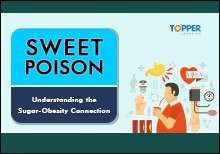Understanding Cancer: Busting Myths and Spreading Hope!
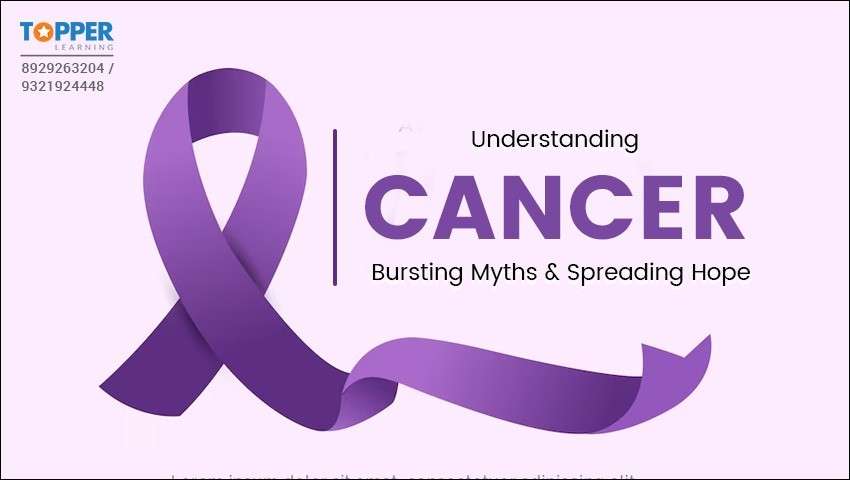
Collaborative awareness about cancer is a must to fight the disease. Discover what cancer is and why its early detection is crucial. Learn, spread, and bust the common myths revolving around cancer.
By Topperlearning Expert 20th Oct, 2023 | 12:16 pm
ShareCancer is a troublesome issue that intimidates society and is threatening to continue. Global Cancer Observatory (GLOBOCAN) estimates 19.3 million cancer incidences worldwide in 2020, with India placing third after China and the United States. GLOBOCAN forecasts a 57.5% increase in cancer cases in India by 2040, reaching 2.08 million people. The early identification of this problem projects as a beam of hope in this dilemma.
The power of information is a strong tool that can help us destroy and resist cancer risk. Let’s demystify cancer by understanding the myths that surround it and spreading hope at the same time.
Understanding Cancer
Cancer is a condition of uncontrolled cell growth. Normal cells of the body lose their ability to control their reproduction as a result of this uncontrolled growth due to DNA complications. Such cells replicate and grow without restraint, resulting in tumours, which are lumps of tissue.
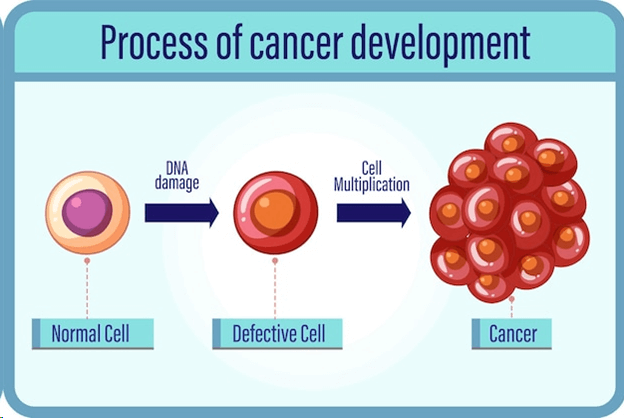
Uncontrolled cell growth has far-reaching and often disastrous consequences. Tumours can interfere with the regular functioning of organs and tissues as they grow, resulting in a variety of health problems. Metastasis can occur if untreated. This occurs when cancer cells break away from the primary tumour and enter the body's circulation or lymphatic system.
The blood and lymph systems transport fluids throughout the body. Cancer cells can migrate from the initial tumour to other parts of the body, causing new tumours, or they can form metastases when they break off from the primary tumour.
The Fear Factor: Why Cancer Strikes Terror?
Cancer is a terrible and emotionally intense disease that is characterised by interwoven characteristics that make it a terrifying experience for those who are affected.
Progression:
Cancer advances differently in different people. Even with the same sort of cancer, the unexpected nature of how it develops causes serious worries. It is sometimes hard to predict how the disease will show or respond to therapy, placing patients and their loved ones in an endless cycle of confusion.
Staging:
The stage of cancer at which it is identified has a major effect on treatment possibilities and chances of survival. Advanced stages usually imply a more difficult battle and a much lower possibility of complete recovery. The realisation that one is in an advanced stage might be distressing, impacting one's mental health.
Prognosis:
Knowing one's prognosis, or the anticipated course and ultimate fate of the disease, is important. Although a bad prognosis can be devastating, while a good one can be relieving, it's still full of uncertainty because no prediction can guarantee an exact conclusion.
Emotional and Physical Toll:
Cancer is a human experience loaded with profound emotions and physical pain. Patients regularly deal with not just the strain of the disease but also the difficult side effects of therapies. Coping with these difficulties while attempting to retain a sense of regularity in life can be pretty challenging.
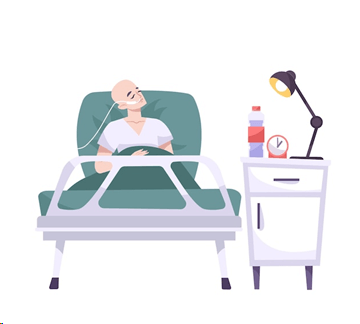
The Imperative of Early Detection
The key to successful cancer treatment is early detection. Detecting cancer in its early stages has various benefits, including greatly improving a patient's prognosis and overall quality of daily life. It enables more effective treatment alternatives, reducing disease aggression and the need for expensive interventions.

Crafting a Way to Treatment Success
Early detection improves treatment outcomes. When cancer is detected early, medical procedures, including surgery, chemotherapy, radiation, and immunotherapy, may prove more targeted and have a greater success rate. This strategy frequently results in a faster recovery and improved long-term consequences.
Strategies for Timely Identification
There are a number of strategies one can apply in order to identify the deadly disease timely. If we practise them, we can catch the disease early and ultimately save lives.
- Screening initiatives, for example, colonoscopies and mammography, are critical for detecting cancer in its early stages.
- Self-examinations enable people to be proactive in identifying potential warning signals.
- Raising awareness of typical cancer signs, for example, unidentified loss of weight or chronic discomfort is vital for early detection and must not be overlooked.
Common Myths & Promoting Understanding
Myths tend to emerge in response to exceptionally widespread conditions. So, it is not surprising that individuals frequently misinterpret cancer. Let us burst out the top three common myths circulating around regarding cancer.
Myth #1: Death is Destined
The common belief is that a cancer diagnosis means passing away. However, it is critical to throw some light on the amazing advances in cancer treatments and rising survival rates. Medical advances, early detection, and personalised therapy have considerably increased the chances of beating cancer. Therefore, a cancer diagnosis does not always mean the end of one's life.
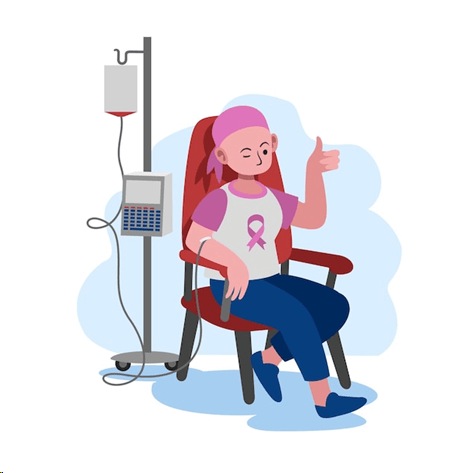
Myth #2: Contagion Concerns
The exaggerated concern is that cancer spreads. This is a completely incorrect assumption. Cancer cannot be transmitted by physical touch, personal item sharing, or even intimate interactions. One must clarify this myth by teaching the public about the genuine causes of cancer, highlighting that it is caused by genetic mutations alongside other factors and is not communicable.
Myth #3: The Allure of Alternative Therapies
There is a fascination with bizarre alternative medications that promise to heal cancer but lack scientific support. It is critical to expose the fact that evidence-based treatments have proved effective in the treatment of cancer. Although complementary therapies can help with symptom management, these need not be used in place of established medical treatments. Having evidence-based practices a priority can result in more intelligent and successful cancer treatment decisions.
Replacing Fear with Facts & Fostering Awareness to Eradicate Misconceptions
Knowledge is the key to breaking the grip of fear on cancer. Realising that improvements in research and treatment can lead to positive outcomes replaces fear with motivation. Knowledge instils confidence in individuals' abilities to face the condition.
Misconceptions can be avoided by raising awareness. The greater our acceptance of scientific information, the less place there is for baseless fear. Cancer facts serve to debunk the disease and provide hope and better options. They enable people to refute myths, handle the situation with greater clarity, and eliminate the taboo linked with the diagnosis.
Making a Difference in the Fight Against Cancer
How can one possibly make a difference to be victorious in this age-old fight? Let us work together to combat cancer's consequences. We must promote awareness, break down stigmas, and collaborate with organisations in order to empower hope through investigation and early detection.
Network18 is steadfastly committed to combating cancer's devastation. Network18 is determined to tackle its impact and effect good change in the fight against this stubborn opponent through Mission Sanjeevani.
Mission Sanjeevani
Mission Sanjeevani is a partnership between Network18, the Federal Bank Hormis Memorial Foundation, and the Tata Trusts to improve cancer awareness and encourage early identification and treatment.

A robust coalition is formed, combining the resources and passion of these powerful organisations with the common goal of fighting cancer. The mission takes the following responsibilities:
1. Creating Awareness and Breaking the Stigma: Emphasising the importance of change and overcoming hurdles to timely diagnosis in order to advance.
2. Uniting for a Better Future: Making a community effort to break the myths surrounding cancer and creating an environment favourable to open conversation and understanding.
3. Embracing Hope and Power to Fight Back: The coalition highlights cancer prevention research and innovation accomplishments, emphasising early identification for successful treatment and survival and emphasising the role of individuals and communities in fighting back.
Concluding Thoughts
Hence, it is important to know the reality of the term cancer. One must understand that just fearing the situation and emotionally breaking down will not help at all. Awareness is the ultimate antidote: awareness of the symptoms, causes, treatment methods, science behind them, etc., is of utmost importance today.
Consider encouraging the masses with a unified effort, which will definitely help many in their battle against cancer. Learn about several diseases and their causes, along with other important subjects, with TopperLearning. We bring you carefully curated, comprehensive study materials for CBSE, ICSE, Maharashtra Board, JEE and NEET.
TopperLearning is now on WhatsApp Channels!
Subscribe today by clicking the link and stay updated on the latest current affairs, study tips, our latest offerings and more. Click here
FAQ's
Q 1. What is the key symptom of cancer?
Ans: Presence of lumps or thickening beneath the skin (as in breast cancer), fatigue, and fever.
Q 2. How long can you have cancer without knowing?
Ans: There is no specific time duration that cancer takes to reveal itself. Some grow very fast, while others grow very slowly and even remain hidden for ten years or more. For example, cancer of the thyroid gland is a very slow-growing one as it never spreads outside the gland.
Q 3. How quickly can cancer spread?
Ans: Cancer growth rates are not determined because each cancer is unique. Some cancers tend to stay put and do not spread greatly. Others mature at such a slow rate that they may never require medical care. Some cancers can spread very quickly and are considered to be the fastest moving. These include pancreatic, brain, esophageal, liver, and melanoma cancers.
Cancer is a troublesome issue that intimidates society and is threatening to continue. Global Cancer Observatory (GLOBOCAN) estimates 19.3 million cancer incidences worldwide in 2020, with India placing third after China and the United States. GLOBOCAN forecasts a 57.5% increase in cancer cases in India by 2040, reaching 2.08 million people. The early identification of this problem projects as a beam of hope in this dilemma.
The power of information is a strong tool that can help us destroy and resist cancer risk. Let’s demystify cancer by understanding the myths that surround it and spreading hope at the same time.
Understanding Cancer
Cancer is a condition of uncontrolled cell growth. Normal cells of the body lose their ability to control their reproduction as a result of this uncontrolled growth due to DNA complications. Such cells replicate and grow without restraint, resulting in tumours, which are lumps of tissue.

Uncontrolled cell growth has far-reaching and often disastrous consequences. Tumours can interfere with the regular functioning of organs and tissues as they grow, resulting in a variety of health problems. Metastasis can occur if untreated. This occurs when cancer cells break away from the primary tumour and enter the body's circulation or lymphatic system.
The blood and lymph systems transport fluids throughout the body. Cancer cells can migrate from the initial tumour to other parts of the body, causing new tumours, or they can form metastases when they break off from the primary tumour.
The Fear Factor: Why Cancer Strikes Terror?
Cancer is a terrible and emotionally intense disease that is characterised by interwoven characteristics that make it a terrifying experience for those who are affected.
Progression:
Cancer advances differently in different people. Even with the same sort of cancer, the unexpected nature of how it develops causes serious worries. It is sometimes hard to predict how the disease will show or respond to therapy, placing patients and their loved ones in an endless cycle of confusion.
Staging:
The stage of cancer at which it is identified has a major effect on treatment possibilities and chances of survival. Advanced stages usually imply a more difficult battle and a much lower possibility of complete recovery. The realisation that one is in an advanced stage might be distressing, impacting one's mental health.
Prognosis:
Knowing one's prognosis, or the anticipated course and ultimate fate of the disease, is important. Although a bad prognosis can be devastating, while a good one can be relieving, it's still full of uncertainty because no prediction can guarantee an exact conclusion.
Emotional and Physical Toll:
Cancer is a human experience loaded with profound emotions and physical pain. Patients regularly deal with not just the strain of the disease but also the difficult side effects of therapies. Coping with these difficulties while attempting to retain a sense of regularity in life can be pretty challenging.

The Imperative of Early Detection
The key to successful cancer treatment is early detection. Detecting cancer in its early stages has various benefits, including greatly improving a patient's prognosis and overall quality of daily life. It enables more effective treatment alternatives, reducing disease aggression and the need for expensive interventions.

Crafting a Way to Treatment Success
Early detection improves treatment outcomes. When cancer is detected early, medical procedures, including surgery, chemotherapy, radiation, and immunotherapy, may prove more targeted and have a greater success rate. This strategy frequently results in a faster recovery and improved long-term consequences.
Strategies for Timely Identification
There are a number of strategies one can apply in order to identify the deadly disease timely. If we practise them, we can catch the disease early and ultimately save lives.
● Screening initiatives, for example, colonoscopies and mammography, are critical for detecting cancer in its early stages.
● Self-examinations enable people to be proactive in identifying potential warning signals.
● Raising awareness of typical cancer signs, for example, unidentified loss of weight or chronic discomfort is vital for early detection and must not be overlooked.
Common Myths & Promoting Understanding
Myths tend to emerge in response to exceptionally widespread conditions. So, it is not surprising that individuals frequently misinterpret cancer. Let us burst out the top three common myths circulating around regarding cancer.
Myth #1: Death is Destined
The common belief is that a cancer diagnosis means passing away. However, it is critical to throw some light on the amazing advances in cancer treatments and rising survival rates. Medical advances, early detection, and personalised therapy have considerably increased the chances of beating cancer. Therefore, a cancer diagnosis does not always mean the end of one's life.

Myth #2: Contagion Concerns
The exaggerated concern is that cancer spreads. This is a completely incorrect assumption. Cancer cannot be transmitted by physical touch, personal item sharing, or even intimate interactions. One must clarify this myth by teaching the public about the genuine causes of cancer, highlighting that it is caused by genetic mutations alongside other factors and is not communicable.
Myth #3: The Allure of Alternative Therapies
There is a fascination with bizarre alternative medications that promise to heal cancer but lack scientific support. It is critical to expose the fact that evidence-based treatments have proved effective in the treatment of cancer. Although complementary therapies can help with symptom management, these need not be used in place of established medical treatments. Having evidence-based practices a priority can result in more intelligent and successful cancer treatment decisions.
Replacing Fear with Facts & Fostering Awareness to Eradicate Misconceptions
Knowledge is the key to breaking the grip of fear on cancer. Realising that improvements in research and treatment can lead to positive outcomes replaces fear with motivation. Knowledge instils confidence in individuals' abilities to face the condition.
Misconceptions can be avoided by raising awareness. The greater our acceptance of scientific information, the less place there is for baseless fear. Cancer facts serve to debunk the disease and provide hope and better options. They enable people to refute myths, handle the situation with greater clarity, and eliminate the taboo linked with the diagnosis.
Making a Difference in the Fight Against Cancer
How can one possibly make a difference to be victorious in this age-old fight? Let us work together to combat cancer's consequences. We must promote awareness, break down stigmas, and collaborate with organisations in order to empower hope through investigation and early detection.
Network18 is steadfastly committed to combating cancer's devastation. Network18 is determined to tackle its impact and effect good change in the fight against this stubborn opponent through Mission Sanjeevani.
Mission Sanjeevani
Mission Sanjeevani is a partnership between Network18, the Federal Bank Hormis Memorial Foundation, and the Tata Trusts to improve cancer awareness and encourage early identification and treatment.

A robust coalition is formed, combining the resources and passion of these powerful organisations with the common goal of fighting cancer. The mission takes the following responsibilities:
1. Creating Awareness and Breaking the Stigma: Emphasising the importance of change and overcoming hurdles to timely diagnosis in order to advance.
2. Uniting for a Better Future: Making a community effort to break the myths surrounding cancer and creating an environment favourable to open conversation and understanding.
3. Embracing Hope and Power to Fight Back: The coalition highlights cancer prevention research and innovation accomplishments, emphasising early identification for successful treatment and survival and emphasising the role of individuals and communities in fighting back.
Concluding Thoughts
Hence, it is important to know the reality of the term cancer. One must understand that just fearing the situation and emotionally breaking down will not help at all. Awareness is the ultimate antidote: awareness of the symptoms, causes, treatment methods, science behind them, etc., is of utmost importance today.
Consider encouraging the masses with a unified effort, which will definitely help many in their battle against cancer. Learn about several diseases and their causes, along with other important subjects, with TopperLearning. We bring you carefully curated, comprehensive study materials for CBSE, ICSE, Maharashtra Board, JEE and NEET.
TopperLearning is now on WhatsApp Channels!
Subscribe today by clicking the link and stay updated on the latest current affairs, study tips, our latest offerings and more. Click here
FAQs
1. What is the key symptom of cancer?
Presence of lumps or thickening beneath the skin (as in breast cancer), fatigue, and fever.
2. How long can you have cancer without knowing?
There is no specific time duration that cancer takes to reveal itself. Some grow very fast, while others grow very slowly and even remain hidden for ten years or more. For example, cancer of the thyroid gland is a very slow-growing one as it never spreads outside the gland.
3. How quickly can cancer spread?
Cancer growth rates are not determined because each cancer is unique. Some cancers tend to stay put and do not spread greatly. Others mature at such a slow rate that they may never require medical care. Some cancers can spread very quickly and are considered to be the fastest moving. These include pancreatic, brain, esophageal, liver, and melanoma cancers.
More from Education
Important Resources
- Education Franchisee opportunity
- NCERT Solution
- CBSE Class 9 Mathematics
- NCERT Solutions for class 10 Science
- Sample Papers
- CBSE Class 9 Science
- NCERT Solutions for class 10 Maths
- Revision Notes
- CBSE Class 10 Hindi
- CBSE Class 10 English
- CBSE Class 10 English
- CBSE Class 10 Social Studies
- CBSE Class 10 Science
- CBSE Class 10 Mathematics
- Career In Science After 10
- Career In Commerce After 10
- Career In Humanities/Arts After 10
- NCERT Solutions for Class 10
- NCERT Solutions for Class 11
- Business Studies Class 12 CBSE project



